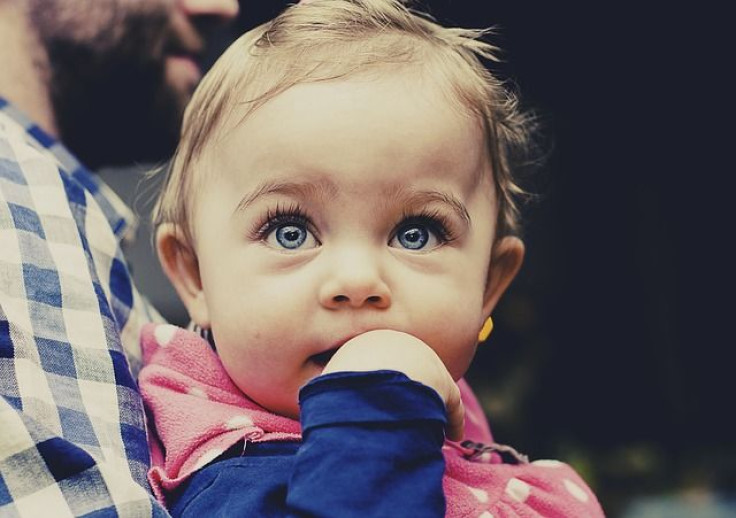Early Signs Of Depression and Anxiety Revealed By fMRI Of Babies' Brains

Feeling down in the dumps, or suffering a bad case of the blues every so often is normal. Bouts of anxiety in response to stressful situations are also normal. However, ongoing feelings of anxiety and depression can be a sign of a mental health disorder, which can develop at any age. A recent study published in Journal of the American Academy of Child and Adolescent Psychiatry (JAACAP) has found signs of anxiety and depression can be spotted as early as birth.
Using functional MRI scans, researchers at Washington University in St. Louis, Missouri, spotted brain connectivity patterns linked to the increased risk of early symptoms related to depression and anxiety, such as excessive shyness, nervousness, or separation anxiety by age two. At birth, specific brain connections may be responsible for mental health problems later in life.
Read More: 5 Warning Signs Of Common Mental Health Disorders In Kids
"The fact that we could see these connectivity patterns in the brain at birth helps answer a critical question about whether they could be responsible for early symptoms linked to depression and anxiety or whether these symptoms themselves lead to changes in the brain," said Dr. Cynthia Rogers, study author, and an assistant professor of child psychiatry at WUSTL, in a statement.
Originally, Rogers and her colleagues set out to identify differences in functional brain connectivity via fMRI brain scans among 65 babies born full-term and 57 premature babies at least 10 weeks old. Preemies were scanned on or near their due dates. The researchers sought to look at differences in connectivity patterns across various brain regions in hopes of finding evidence to explain why preemies have a higher risk of developing psychiatric problems, like anxiety and depression, later in life. They focused on how the amygdala, a brain structure involved in processing emotions, connects with other brain regions.
The findings revealed that connection patterns between the amygdala and other structures, like the insula — involved in consciousness and emotion — and the prefrontal cortex, which plays a role in planning and decision making, increases the risk of early depression and anxiety symptoms. At two years old, a group of these infants (27 preemies, 17 full term), took part in a follow-up to look for early symptoms of anxiety and depression.
Interestingly, premature babies were no more likely than full-term babies to show early signs of anxiety and depression. The severity of early anxiety symptoms was linked with brain connectivity patterns seen in both groups. The researchers want to include all the children from the study when they are 9 to 10 years old to learn whether brain connections continue to influence the risk for depression and anxiety disorders.
A similar 2009 study suggests a baby's temperament, discernable at 4 months old, predicts the structural development of the anterior prefrontal cortex — responsible for emotional response and control. The researchers found babies who were highly reactive to new experiences were 10 times more likely to develop depression and anxiety disorders in adulthood than were less reactive children. Adults who had been highly reactive as babies grew a thicker prefrontal cortex, which controls the fear response. The researchers believe increased cortical thickness may interfere with proper functioning of brain region, which can lead to increased depression and anxiety.
Read More: What Is High-Functioning Depression, Anxiety?
Rogers cautions against generalizing the findings, admitting she and her team would like to study how the brains of these children develop over time.
"We want to determine whether they still have many of the same differences in connectivity, whether there have been any changes in the structural and functional connections in their brains, and how all of that relates to whether they have symptoms of psychiatric disorders," she said.
Brain scans at birth may help assess potential mental health issues that can manifest later in life, even in healthy, full-term babies.
Source: Rogers C, Sylvester CM, Mintz C et al. Neonatal Amygdala Functional Connectivity at Rest in Healthy and Preterm Infants and Early Internalizing Symptoms. JAACAP. 2017.
See Also:
Kids With Anxiety Disorders ‘Significantly’ Benefit From Mindfulness Exercises
Kids With Depression Won’t Experience As Much Joy Over Gifts



























